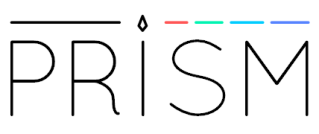One of the least helpful constructs of our “digital humanities” moment has been a supposed active opposition, drawn out over the course of years in publications, presentations, and social media conversation, between two inane-sounding concepts: “hack” and “yack.” The heralding of DH as the academy’s “next big thing” has been (depending on whom you ask) over-due or overblown, unexpected or contrived, refreshing or retrograde—but one thing is clear: everyone has a rhetorical use for it. The uses of “hack vs. yack,” on the other hand, rapidly became so one-sided that I find it odd the phrase retains any currency for critique.
Category: higher ed
toward a new deal
 [This is the cleaned-up and slightly expanded text of a talk I gave last week, at a University of Illinois symposium on the future of the humanities at state-funded, US-based research universities. My paper was called “Graduate Training for a Public and Digital Humanities.” The organizers of the symposium, Gordon Hutner and Feisal G. Mohamed, framed its goals in a New Republic essay and positioned the event deliberately between two significant anniversaries: of the Morrill Act, establishing land-grant universities in the US, and the GI Bill, extending higher education to the American under-classes.]
[This is the cleaned-up and slightly expanded text of a talk I gave last week, at a University of Illinois symposium on the future of the humanities at state-funded, US-based research universities. My paper was called “Graduate Training for a Public and Digital Humanities.” The organizers of the symposium, Gordon Hutner and Feisal G. Mohamed, framed its goals in a New Republic essay and positioned the event deliberately between two significant anniversaries: of the Morrill Act, establishing land-grant universities in the US, and the GI Bill, extending higher education to the American under-classes.]
Today, some 20 years after its first formulation, there is little question of the validity of Jerome McGann’s core and repeated argument: that we humanities scholars and publics stand before the vast, near-wholesale digital transformation of our various and shared cultural inheritance. This transformation – more properly, these remediations – are fully underway. They open new avenues for the work of the liberal arts in all of its spheres: for our ability to gain access to, to analyze and interpret, and most importantly to vouchsafe to future generations, the words, images, sounds, and built and material objects that crystalize in our archives and which we so carefully position to refract little, mirror-like understandings of what it has meant, for the blink of an eye, to be human. Continue reading “toward a new deal”
what’s next
As we end an amazing 11-year run of the Mellon Foundation-supported Scholarly Communication Institute (the last six years of which it was my privilege to witness, learn from, and help to engineer at UVa), I am looking forward to new chances and challenges. Today, CLIR, the Council on Library and Information Resources, announced my appointment as a Distinguished Presidential Fellow. (I’m still a little stunned.) A couple of days ago, I accepted an invitation from our wonderful Provost to join his office in the part-time role of Special Advisor, assisting at the institutional level in the advancement of digital humanities scholarship at UVa. And on Tuesday I turned forty! Quite a week. Continue reading “what’s next”
prism, for play
This week marks the release of a new version of Prism, a web-based tool for “crowdsourcing interpretation,” constructed over the course of two academic years by two separate cohorts of graduate fellows in our Praxis Program at the Scholars’ Lab.
Praxis fellows are humanities and social science grad students across a variety of departments at UVa, who come to our library-based lab for an intensive, team-based, hands-on experience in digital humanities project-work, covering as many aspects of DH practice as our practiced Scholars’ Lab staff can convey. Continue reading “prism, for play”

